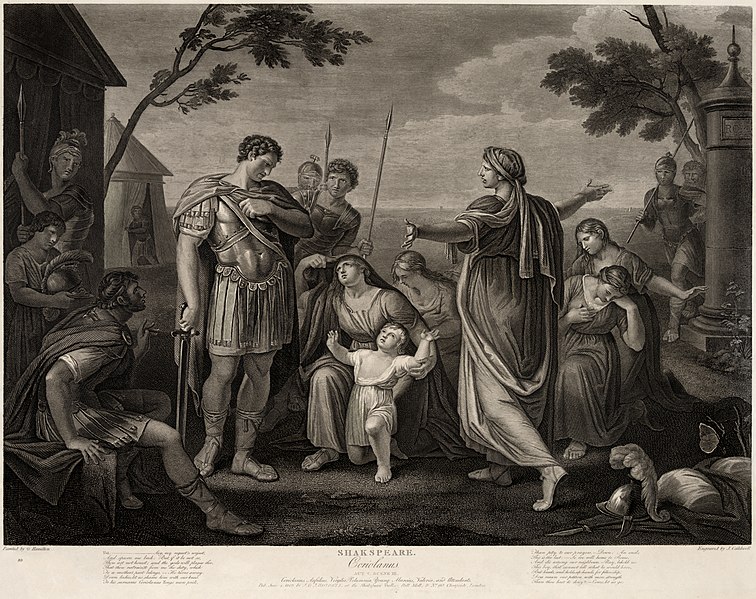
Beethoven "Coriolan" Overture Op.62,
Carlos Kleiber: Conductor Bayerische Staatsorchester
贝多芬:科里奥兰序曲
BEETHOVEN: Coriolanus Overture
科里奥兰是传说中的罗马英雄,莎士比亚以他的故事写成一部悲剧。传说491年罗马发生饥馑,科里奥兰提出,接受救济的民众必须同意废除保民官制度,否则不发给赈灾粮。为此他受流放的惩罚,后投奔沃尔西国王,带领沃尔西人打回罗马,在其母与其妻的恳求下,才从罗马撤兵。莎士比亚悲剧由维也纳剧作家科林改编为歌剧,贝多芬于1807年为它创作了这首序曲。这首序曲表现的是英雄科里奥兰为了比他本人更崇高的东西而放弃了复仇,同时也放弃了自己的生命。在莎士比亚的悲剧中,科里奥兰由于放弃了指挥权而被沃尔西人谋害;而在科林的剧本中,他则是自杀。
瓦格纳对这个人物的评介是“他野性难驯,不虚伪,也不谦让。”这首序曲OP.63,C大调,奏鸣曲式,以科里奥兰本人庄严的姿态开头,紧接着是他的愤怒不安,他愤怒的对抗被一个柔美的主题打断,形成传统奏鸣曲—快板曲式中的对比。这个主题可理解为科里奥兰亲人们的乞求。在发展部,表现了英雄内心的犹疑不决,内心的矛盾,荣誉的崩溃,以及不以苦乐为意的自我毁灭而获得的胜利。结尾,乐队渐渐沉浮在一片寂静之中。
The Coriolan Overture (German: Ouvertüre Coriolan, op. 62) is a composition written by Ludwig van Beethoven in 1807 to Heinrich Joseph von Collin's 1804 tragedy.[1] The structure and themes of the overture follow the play very generally. The main C minor theme represents Coriolan's resolve and war-like tendencies (he is about to invade
Two of the most highly regarded recordings are of Wilhelm Furtwängler conducting the Berliner Philharmoniker (1943) and Fritz Reiner conducting the Chicago Symphony Orchestra in 1959. Sir Roger Norrington has created a notable period performance version with his recording of the overture with the London Classical Players.
Other notable recordings include those by Herbert von Karajan with the Berlin Philharmonic, Karl Böhm with the Vienna Philharmonic, Carlos Kleiber conducting Bavaria State Orchestra and Bruno Walter conducting the Columbia Symphony. The work was a staple of Arturo Toscanini's repertoire, and six recordings under Toscanini's baton are extant as well as one recording of rehearsal excerpts.
(百度 wiki)